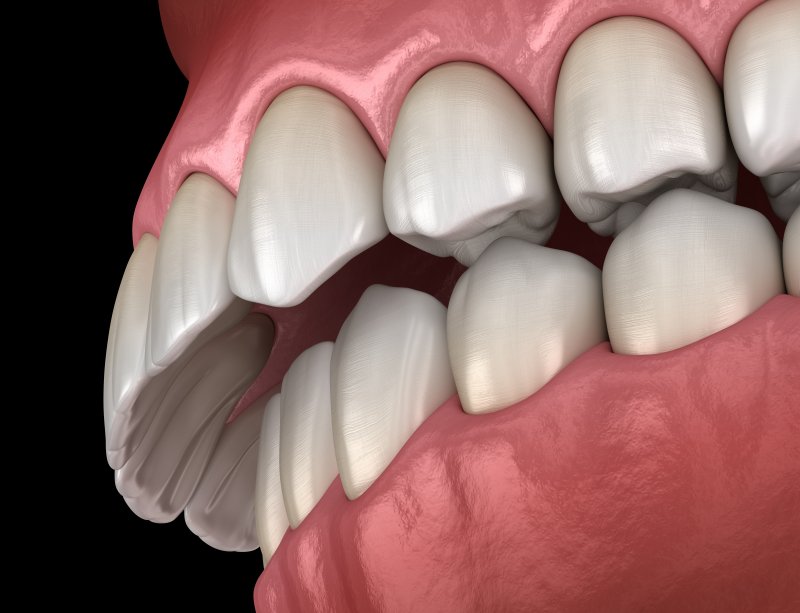
Orthodontic treatment is not only designed to fix crooked or gapped teeth. It is also commonly recommended for patients living with a misaligned bite. Whether it is an overbite, underbite, crossbite, or open bite, the complications that can arise, such as worn-down tooth enamel, chronic jaw pain, and low self-esteem, have the potential to wreak havoc on your physical, mental, and emotional health. While you might assume that metal braces are the only solution, you may be surprised to learn that Invisalign can help. Keep reading to discover how these clear aligners can bring your smile back into proper alignment.
What Causes Bite Misalignment?
Bite misalignment, also known as malocclusions, comes in many different shapes and sizes. Overbites, underbites, crossbites, and even open bites are known to create serious oral health problems if left untreated.
Unfortunately, these formations are often the result of:
- Genetics – You may have a unique jaw shape and/or size that causes you to experience malocclusion.
- Facial trauma – You sustain a broken or fractured jaw, or you suffer a serious disease that causes misalignment to form.
- Poor lifestyle habits – As a child, you sucked your thumb or developed a tongue-thrusting habit that resulted in poor jaw development and bite misalignment.
Can Invisalign Address Bite Misalignment Issues?
It might seem unbelievable to think that clear, plastic aligners can move teeth in a way that creates a more perfectly aligned bite, but it is true – they can!
All of the above-mentioned types of malocclusions can be addressed with the help of Invisalign, but it does require patience and a commitment to the treatment process. Since clear aligners are not attached to your teeth like metal braces, it is your responsibility to make sure that you abide by the guidelines provided by your dentist.
When treating an overbite, you can expect your teeth to shift back with the help of Invisalign. Additional attachments can be used to quicken the process if needed. For underbites, the use of Invisalign is less common but still possible. Your dentist will determine the severity of the problem and decide if clear aligners or metal braces will be more effective, as underbites tend to be easier to treat in younger patients whose jaws are still developing.
For single-tooth crossbites, Invisalign can be a great option, as the work is primarily focused on your teeth and not your jaw. However, if the problem is related to your jawbone, more extensive orthodontic treatment may be required.
Finally, when treating an open bite, Invisalign is often a go-to solution. The reason is that these clear aligners can help move certain teeth, also known as staging. By focusing on shifting certain teeth at designated times, the chances of a more perfectly aligned bite are much higher.
When living with an overbite or another type of misalignment, don’t discount treatment with Invisalign. After a thorough discussion with your dentist, you may find that these clear aligners can give you the smile you need and deserve.
About the Author
Dr. Monica Boehmer is a cosmetic dentist in Albuquerque who delivers top-of-the-line care to all patients. Those who arrive with bite misalignment issues may worry that metal braces are the only answer. However, her expertise and advanced training make it possible for her to offer Invisalign as an alternative solution. Contact us at (505) 271-8009 to find out if these clear aligners can reposition your bite and create a more comfortable and fully functional smile.
